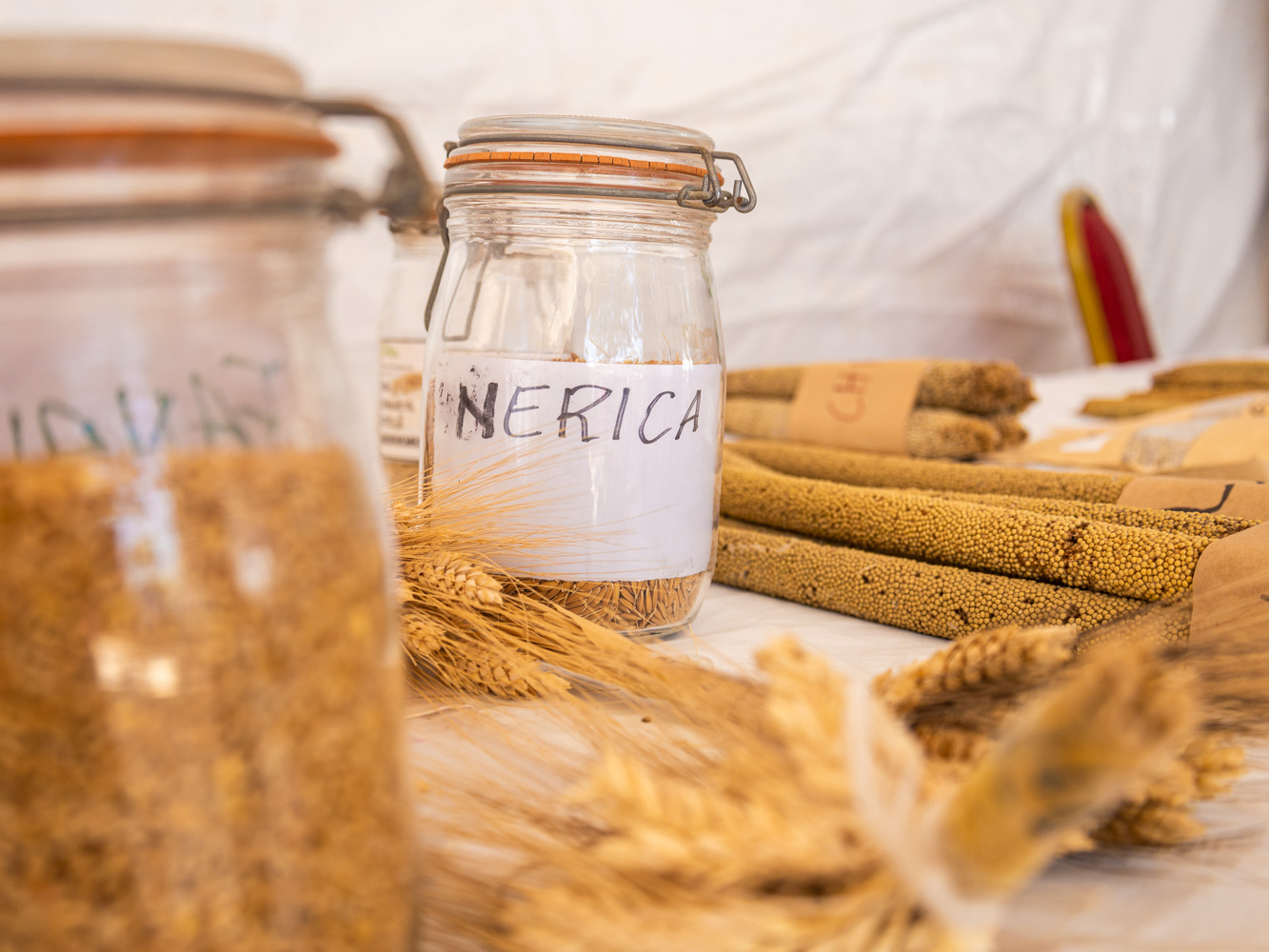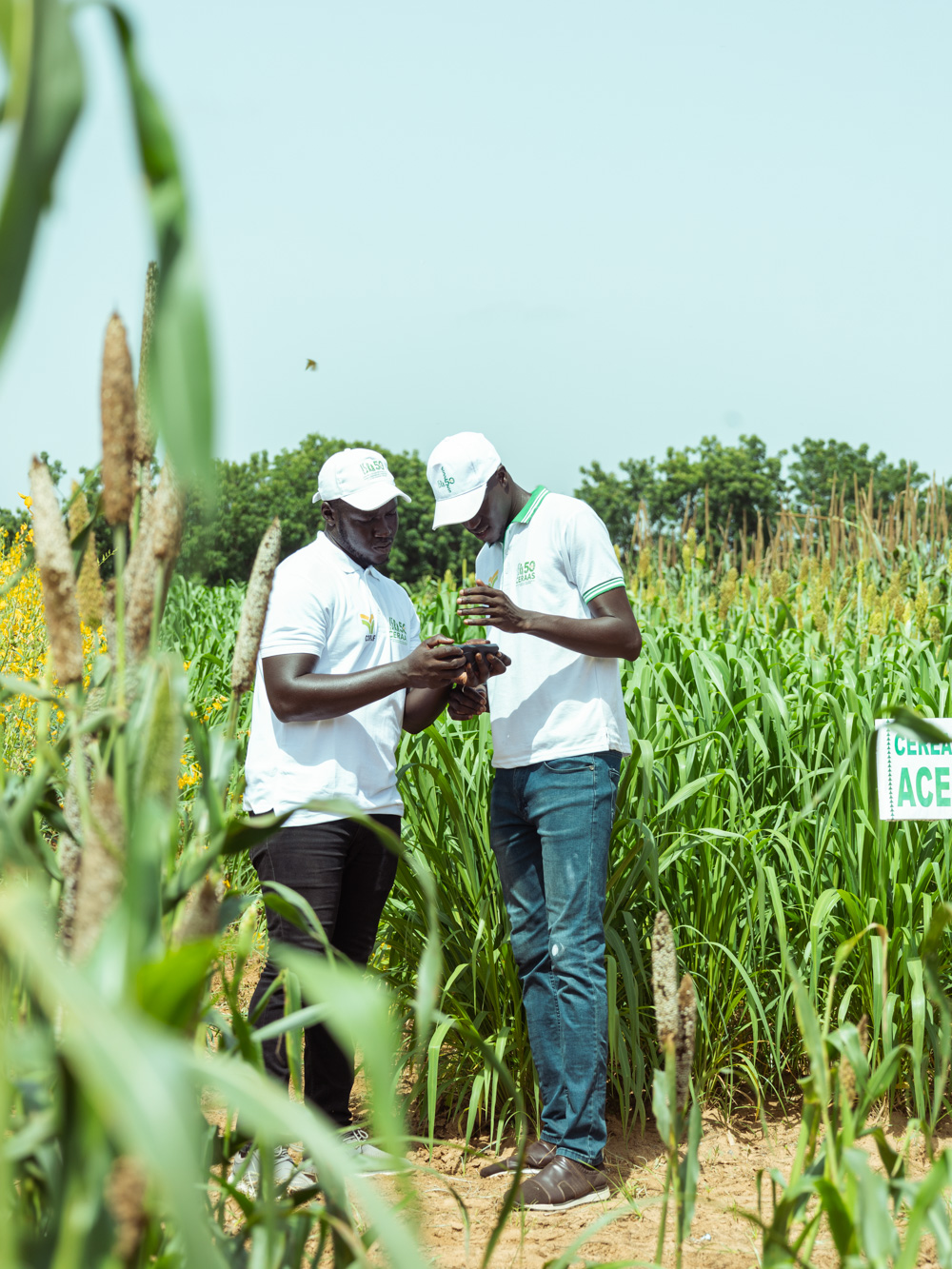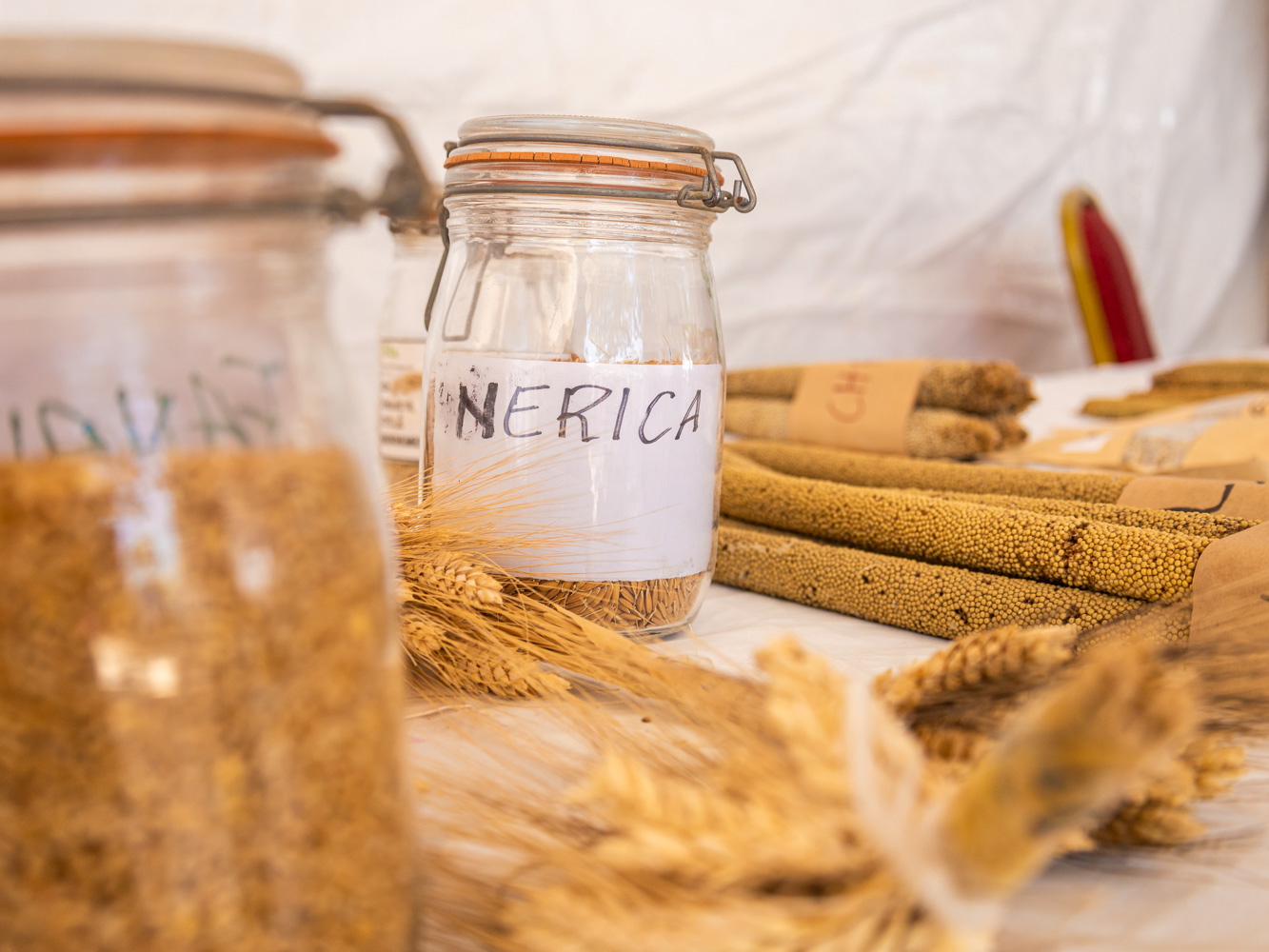News
CORAF is an important organization working to improve food and nutrition security in West Africa. CORAF's recent initiatives are a promising sign of its determination to meet the challenges facing West Africa.
Bambey Park develops improved seed varieties to meet the challenge of food sovereignty

Published on: 04/10/2024
Technoparc de Bambey, a showcase for improved seed varieties to meet the challenge of food sovereignty
Initiated by the West and Central African Council for Agricultural Research and Development(CORAF ), the agricultural technology and innovation parks are designed to demonstrate to farmers the tools to be used and the recipes recommended by research for better yields. To achieve this, the choice of varieties used is not made at random.
Thirty (30) crop varieties, including groundnuts, sorghum, sesame and fodder crops, are being demonstrated at the CNRA park in Bambey, some 130 km east of Dakar.

The more productive and profitable fleet millet
Researchers at the Centre National de Recherches Agronomiques (CNRA) in Bambey have developed varieties that are more resilient to climate change and more productive, much to the delight of millet growers.
The millet varieties Souna Saloum SL28 and Biofertile Middle or Thialak2 are compared with the local variety, Souna3.
Unlike the local variety, the straw of improved millet does not turn yellow when ripe. This is an important aspect for livestock feed, making for a system of integration between agriculture and livestock farming.
Researchers tell us that in the park, the most sought-after innovation is denser sowing with millet. The experiment carried out in Bambey made it possible to reduce spacing to increase yield.
Instead of variety 09-09, the researchers came up with variety 09-045. Growers who adopted these varieties achieved yield benefits of up to three tonnes per hectare (3.7 tonnes for millet in Gaulel).
In the same vein, the registered Thiakdi millet variety, very rich in iron and zinc, attracted the attention of visitors.
According to the Bambey researchers, this variety is very useful for alleviating nutritional deficiencies in children and pregnant women. In their opinion, this will help to reduce the need for these highly vulnerable populations to take systematic medication.
The same principle was adopted with groundnuts, to encourage the scaling-up of innovation with yields of over three tonnes per hectare.
The Bambey technology park is also experimenting with the cultivation of forage plants such as panico maximum, colatanaria and forage cowpea.
For bissap, two technologies have been developed: red bissap and white bissap.
Sorghum varieties are dual-purpose, with a clear improvement in the seed. The tannin that made the flour of this cereal a little bitter has been removed.
The same applies to sesame, with new varieties being developed that produce more bolls and branches, resulting in higher yields.
The improved varieties grown at the Bambey technopark are dual-purpose, providing both seeds and straw for livestock.

A response to current challenges
The properties noted in the varieties used at Bambey respond, in the opinion of the researchers, to a number of challenges that are high on the development agenda in Africa.
We're talking about food security and sovereignty, and seed sovereignty. What's more, these developed seeds are a tool for resilience in the face of climate change.
Technoparks also open the way for technology exchanges and experience-sharing to develop corridors at regional and African level.
Other news
View allTowards a strengthening of CORAF's actions in...
A delegation from CORAF, led by its Chairman of the Board, Dr Kalifa TRAORÉ, its Executive Director, Dr Moumini SAVADOGO, and its...
A strong plea for African women entrepreneurs...
Many women in West and Central Africa live in an unfavorable environment, with limited access to information,...
CORAF strengthens its partnerships in Burkina Faso...
As part of its mission to strengthen institutional and technical collaboration, a delegation from CORAF, led by its Director,...
Training today's and tomorrow's researchers:...
When AMABA Akéta Akpadji Rébecca completed her Master's degree in Plant Biology in Togo, she was faced with uncertainties about...